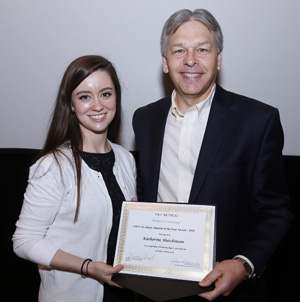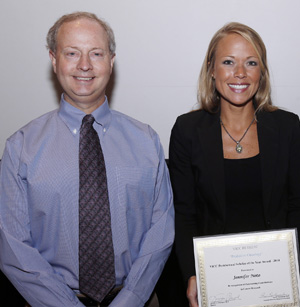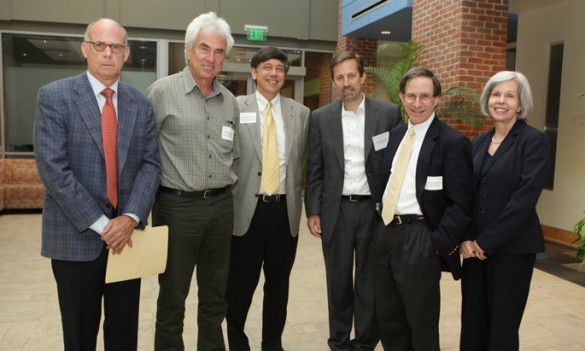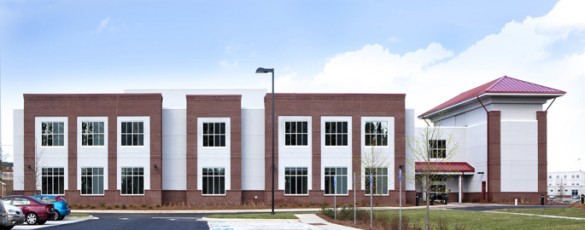Using enhanced gene mutation testing to provide precision therapy for cancer patients was one of the themes at the annual Vanderbilt-Ingram Cancer Center (VICC) scientific retreat, held May 15 at the Vanderbilt Student Life Center.
Two prominent cancer researchers from other cancer centers and an imaging specialist from VICC discussed the current state of cancer diagnosis and care during the event organized by Ann Richmond, Ph.D., Ingram Professor and vice chair of the Department of Cancer Biology.
Prostate cancer survivor and VICC patient research advocate Ralph Conwill told the audience of scientific investigators, “My heart was on fire and my brain was turned off,” after hearing the initial cancer diagnosis from his physician. Conwill said there is a need to better educate patients to be effective participants in their own treatment.
Explaining the complexity of each patient’s cancer is becoming more challenging as scientists uncover gene mutations or gene fusions that may be unique to each patient’s tumor.
Guest speaker Elaine Mardis, Ph.D., said the field of cancer genomics is starting to have “tangible impacts on patients’ lives.”

Mardis, professor of Genetics and Molecular Microbiology and co-director of the Genome Institute at Washington University School of Medicine, St. Louis, discussed an effort to use a tool kit that includes next-generation gene sequencing methods to find mutations in each patient’s tumor so clinicians can choose therapies that are targeted to those mutations. This same approach is very useful for determining genetic mechanisms of resistance to ongoing therapies and Mardis’ group is a driving force in those diagnostic approaches.
But finding mutations is just the first step in understanding which mutations are actually driving the cancer, according to Ross Levine, M.D., whose research focuses on acute myeloid leukemia (AML). Levine holds the Laurence Joseph Dineen Chair in Leukemia Research at Memorial Sloan Kettering Cancer Center in New York.

For nearly 20 years, Levine said new cancer-related genes have been highlighted in scientific publications.
“Despite all that work, we only test three or four genes in the clinic. We have to use that new body of knowledge.”
Levine said there is a need for “prognostic models” to understand and predict the molecular process that leads to a lethal transformation of cells.
Researchers are already using new imaging technologies to improve treatments, according to Thomas Yankeelov, Ph.D., Ingram Professor of Cancer Research and director of Cancer Imaging Research at VICC.
Yankeelov said scientists are studying four characteristics of tumors and are using that knowledge to determine even earlier in the treatment process if a specific cancer therapy is working.
During the retreat, two research trainees were recognized for their scientific excellence.
Katie Hutchinson received the award for VICC Graduate Student of the Year and Jennifer Noto, Ph.D., was named VICC Postdoctoral Fellow of the Year.
Retreat participants also submitted research posters and Huapeng Yu, Ph.D., won the prize for Best Overall poster. First place prizes were awarded to Matthew McKenna, Whitney Barham, Christine Petersen, Katherine Amato and Neil Bhola.















